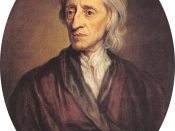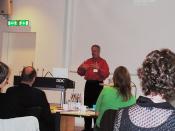Fighting for democracy in an age of monarchies in Europe, John Locke was a revolutionary thinker whose belief in human reason and self-rule inspired many intellectuals centuries after his death. Advocating the "general will," or actions and decisions for the good of the community rather than one's self, the insight of Jean-Jacques Rousseau is found in almost every hint of modern philosophy. Though in common they share theories on the state of nature where man existed prior to civilization and the social contracts they explained, many specific entities from the ownership of property to the rights of man differ among these philosophers in this state leading to dissimilar notions of equality and democracy. While Locke advocates that government exists for the protection of rights and freedoms in the state of nature, Rousseau foregoes these rights and states that it is in fact to facilitate the general will of the people, arguing that we give up our state of nature rights for this general will.
Throughout his work, the emphasis of Locke on the capacity of humans to govern themselves and protect the prosperity of society as a result of their gift of reason is the framework for his views on equality: "The state of nature has a law of nature to govern it, which obliges every oneâ¦" (Porter 332). Under the law of nature all are equal and anything that interferes with this is illegitimate, and can even induce a state of war caused by a force trying to impose something on the life of another as in the case of absolute monarchies and principles of slavery. Ultimately humans want to avoid the state of war and this leads them to enter society. Rousseau takes this equality a step further; he feels all men should be equally represented in the...


